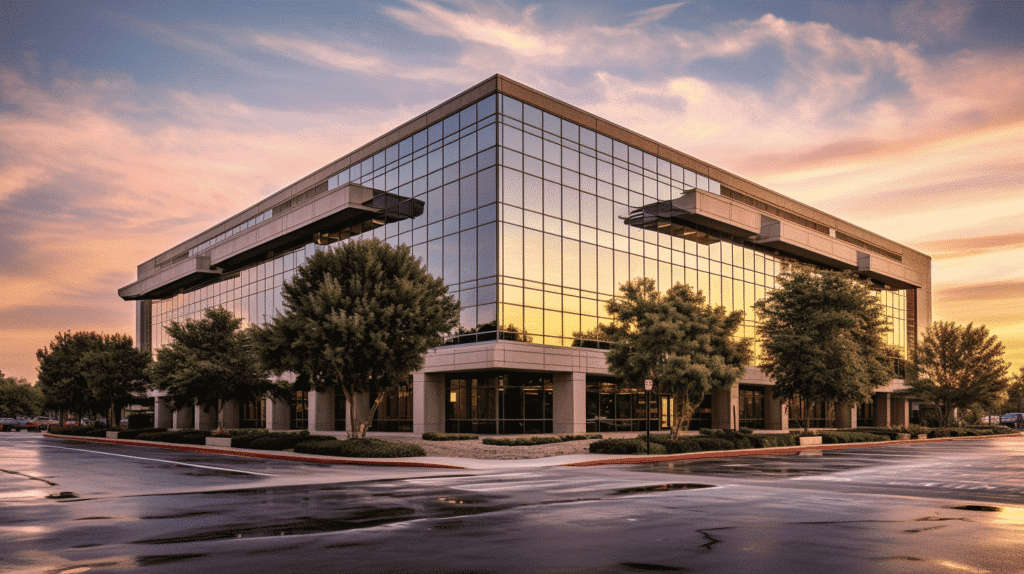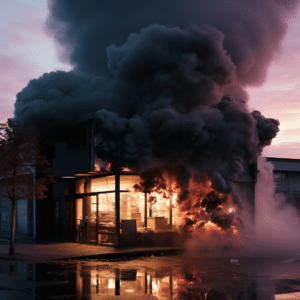Understanding the Differences: Broad Form vs Special Form Insurance Coverage
Last updated Monday, December 11th, 2023

Navigating the world of insurance can be a daunting task, especially when faced with the countless options available. Understanding the differences between coverage types is crucial to ensuring that you have the right protection in place for your unique needs. This blog post will delve into the intricacies of “broad form vs special form” insurance coverage, empowering you to make an informed decision about your insurance options.
We’ll explore the key differences between these two types of coverage, examining how they stack up against basic form insurance and other coverage options in the context of “broad form vs special form”. By the end of this post, you’ll have a solid understanding of the various insurance coverage types and be well-equipped to choose the best policy for your personal or commercial needs.
Broad Form vs Special Form: Key Differences
Broad form insurance is a type of “named perils” policy, which means it provides coverage only for those causes of loss that are explicitly stated, while any other perils are specifically excluded. On the other hand, special form insurance is a more comprehensive option, covering all perils except for those that are explicitly excluded from the policy. A closer examination of the finer details of their respective policy structures will enhance our understanding of the distinctions between these two coverage types.
The upcoming sections will delve into the concept of named perils in broad form coverage and open perils in special form coverage. This will provide valuable insights into the advantages and disadvantages of both types of insurance, helping you make an informed decision about which coverage best suits your needs.
Did Your Insurance Company Delay, Underpay, or Deny Your Claim?
Let's Get You Compensated! Call The Best Texas Bad Faith Insurance Lawyer For a FREE Case Review to Know What Your Case Is Worth.
Named Perils in Broad Form Coverage
Broad form insurance coverage offers more control over coverage choices compared to basic form policies, as broad form insurance policies, also known as broad form policy, only cover explicitly stated causes of loss, also known as named perils. This means that the policyholder can select which specific perils they want to be covered against, tailoring their policy to their individual needs and risk profile.
Some of the named perils typically covered in broad form insurance include:
- Fire
- Theft
- Hail
- Windstorms
- Vandalism
- Impact from a vehicle or aircraft
- Smoke
- Falling objects
- Riot
This level of customization allows policyholders to secure more extensive protection against specific risks, while potentially reducing their premiums by excluding coverage for perils they deem less relevant to their situation.
Open Perils in Special Form Coverage
In contrast to broad form insurance, special form policies provide coverage for any sudden and accidental loss, except for those specifically excluded from the policy. This means that special form insurance offers a more comprehensive level of protection, as it covers a wider range of perils than a named perils policy. Some common exclusions in special form insurance include earthquakes, backup of sewers and drains, and equipment breakdown.
The expansive nature of special form insurance makes it a popular choice for individuals and businesses seeking robust protection against unforeseen events. However, a careful review of the list of excluded perils in a special form policy is necessary to ensure awareness of any potential gaps in coverage.
Examining Coverage Types: Basic, Broad, and Special
Having delved into the specifics of broad form and special form insurance, it becomes crucial to comprehend how these coverage types fit into the broader insurance landscape. The three primary coverage options available are:
- Basic form insurance: Provides the most limited coverage.
- Broad form insurance: Offers intermediate levels of protection.
- Special form insurance: Offers the most comprehensive protection.
The upcoming sections will focus on basic form coverage, as well as comprehensive and collision coverage options. By examining these coverage types in detail, you’ll gain a more holistic understanding of the range of insurance options available, enabling you to make an informed decision about the best coverage for your unique needs.
Basic Form Coverage
Basic form insurance is the most limited type of coverage, offering protection against a few specific perils. Named perils are a type of insurance coverage. They usually cover damage caused by:
- fire
- lightning
- windstorms
- smoke
Due to its limited scope, basic form insurance is typically the most affordable option, but it may not provide adequate coverage for all potential sources of property damage or loss. To ensure you have the right coverage, consider reviewing your basic form policy.
Some events or damages not included in basic form insurance coverage are water damage, theft, and events not specifically named in the policy. As such, basic form insurance may not be suitable for individuals or businesses seeking more comprehensive protection against a wider range of risks.
Commercial Property Insurance: Broad vs Special Form
When it comes to commercial property insurance, both broad form and special form policies offer distinct advantages, depending on the specific needs of your business. Commercial property insurance is designed to protect businesses from financial losses incurred due to property damage or loss. Given the options of basic, broad, and special form policies, a careful evaluation of your business’s unique requirements is crucial to ensure you have the appropriate coverage in place.
The subsequent sections will focus on the differences between broad and special form commercial property insurance in greater detail, highlighting common perils and exclusions. By understanding these nuances, you can make an informed decision about the best coverage option for your business.
Common Perils in Commercial Property Insurance
Commercial property insurance typically covers perils such as fire, vandalism, theft, wind damage, explosions, and vehicle collision. However, the specific perils covered can vary depending on whether you have a broad form or special form policy. Broad form commercial property insurance covers a range of named perils, such as fire, lightning, smoke, windstorm or hail, explosion, riot or civil commotion, aircraft or vehicles, vandalism, sprinkler leakage, sinkhole collapse, and volcanic action.
Special form insurance coverage, also known as Special Perils Coverage, provides the most comprehensive protection for commercial property, covering a wide range of perils, including those specified in the policy and others not excluded. As such, businesses with higher risk exposure or more valuable assets may benefit from the increased protection offered by special form policies.
Equipment Breakdown and Other Exclusions
Despite the comprehensive coverage offered by commercial property insurance, some exclusions do apply. Equipment breakdown, wear and tear, and lack of maintenance are common exclusions in commercial property insurance policies. This means that damage resulting from these events may not be covered, leaving businesses potentially exposed to financial loss.
A thorough review of your commercial property insurance policy is necessary to understand any exclusions or limitations that may apply. By doing so, you can ensure your business is adequately protected against potential risks and take any necessary steps to mitigate potential losses.
Choosing the Right Coverage: Factors to Consider
When it comes to selecting the right insurance coverage, assessing risk, coverage needs, and costs is crucial in determining the best option for individuals and businesses. By carefully evaluating your unique requirements and risk exposure, you can make an informed decision about the type and extent of coverage that will best protect your assets and financial interests.
The subsequent sections will delve deeper into the process of assessing risk and coverage needs, along with the importance of comparing costs and benefits. By understanding these factors, you’ll be better equipped to choose the best insurance policy for your personal or commercial needs.
Assessing Risk and Coverage Needs
The process of assessing risk for insurance coverage involves identifying, analyzing, and evaluating potential risks. By understanding the specific perils and threats associated with your personal or business situation, you can determine the appropriate type and extent of insurance coverage required. Factors such as business location, loss history, nature of the business, personal information, and potential risks all play a role in determining the most suitable insurance policy.
Taking the time to carefully assess your risk and coverage needs is a vital component of selecting the right insurance policy. By considering factors such as the value of your assets, potential risks, and desired coverage options, you can ensure that you have the appropriate protection in place for your unique needs.
Comparing Costs and Benefits
In the determination of the most suitable insurance policy, weighing the costs of premiums against the benefits of coverage is essential. Higher costs, such as premiums and deductibles, can influence the affordability of the coverage. It’s important to assess the potential savings in premiums against the potential financial burden of a higher deductible or less comprehensive coverage.
By comparing the costs and benefits of various insurance options, you can make an informed decision about the coverage that best suits your needs and budget. This process will help you prioritize your insurance needs and allocate your resources efficiently, ensuring that you have the appropriate level of protection in place.
Frequently Asked Questions
What is a broad form?
Broad form is a type of home insurance policy offering comprehensive coverage for the insured dwelling, and named perils coverage for contents. It provides liability coverage with an important distinction, as it only covers one licensed driver on the policy. Additionally, it goes above and beyond the basic policy form to offer coverage for additional perils.
What is the difference between broad and comprehensive perils?
Broad form home insurance policies provide comprehensive protection for the home itself, but only cover damages from named perils for your contents or personal belongings. In contrast, comprehensive home insurance policies provide all-perils coverage for both the home and your belongings.
What is the difference between broad and basic home insurance?
Broad Form home insurance provides more extensive protection than Basic Form, covering all the perils in the Basic Form policy plus additional common perils like water damage, falling objects and burglary/break-in damage. It also is a named-perils policy meaning it covers only what is named in the policy document.
What is a special form insurance policy?
Special form insurance is the most comprehensive type of property coverage, providing coverage for any peril unless specifically excluded in the policy. It is also known as “open peril” or “all risk” coverage, and it is much broader than named peril forms.
What is broad form commercial insurance?
Broad form insurance offers more comprehensive coverage than the basic form policy, including losses due to fire, lightning, falling objects, weight of ice and snow, vandalism, and water damage. Burglary/Break-in damage, broken windows, and other structural glass is also covered by a broad form insurance policy.


